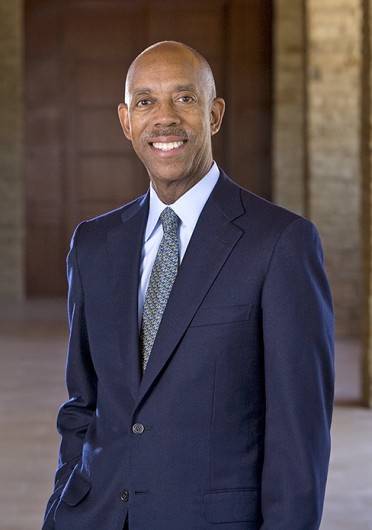
University of California Irvine Chancellor Michael Drake is expected to become the next OSU president.
Credit: Courtesy of Ria Carlson
University of California Irvine Chancellor Michael Drake is expected to be named the next president of Ohio State.
Ria Carlson, associate vice chancellor of strategic communications at UC Irvine, declined to comment on whether Drake was a finalist for the OSU presidency Wednesday afternoon. Carlson had said Monday she hadn’t heard anything and didn’t think Drake would want to comment, but would look into it.
OSU spokesman Gary Lewis said he did not know who the next president would be late Wednesday afternoon.
Multiple sources have told The Lantern OSU is set to announce its next president this week.
The OSU Board of Trustees was set to meet in a full public meeting Friday. That full Board meeting was moved to Thursday, and the public was notified at about 4 p.m. Wednesday.
“The full Board of Trustees will now reconvene at 4 p.m. (Thursday), with a brief executive session to be followed by a public session at approximately 4:20 p.m.,” the notice read.
According to Board minutes, personnel actions were set to be made at the Friday public meeting.
Drake was appointed chancellor of UC Irvine in 2005. Before his appointment, he served as vice president for health affairs for the University of California system for five years.
UC Irvine has more than 28,000 undergraduate and graduate students, according to UC Irvine 2013 Facts and Figures.
Drake is an alumnus of Stanford University and UC San Francisco.
Drake would be the first black OSU president in the university’s 144-year history. Drake would also be the 15th OSU president. If announced this week, his appointment would come roughly seven months after former President E. Gordon Gee retired July 1.
Gee announced his decision to retire from OSU days after controversial comments he made at a Dec. 5, 2012, OSU Athletic Council meeting came under public scrutiny. Remarks about Notre Dame and the Southeastern Conference in particular brought national attention. The former two-time OSU president is currently serving as president at West Virginia University, taking an unpaid leave as president emeritus at OSU.
OSU Vice President and athletic director Gene Smith said Wednesday afternoon that while he didn’t know who the next president is because, he stays out of those conversations, he had faith it will be the best person for the job.
“Whoever it is, I have the greatest confidence in our trustees in that they’ll find an outstanding leader for us,” Smith said in an interview with The Lantern Wednesday. “Having done this for a long time, I think I’ve worked for eight or nine different presidents in my tenure. So I’ll adjust. Somewhere, someplace like Ohio State, you’re going to get someone that can handle complex organizations and understand athletics to some degree. So I look forward to it.”
Interim President Joseph Alutto announced Tuesday Smith received a four year contract extension until 2020, a roughly 12 percent pay raise and was named a vice president of the university.
Undergraduate Student Government Vice President Josh Ahart, a fourth-year in public affairs, said Wednesday night he believes Drake is a good choice for the next OSU president.
“I think he’s a great guy, I think he’ll be a tremendous leader for Ohio State,” Ahart said. “I trust that the Board and the Presidential Search Committee did a great job getting the best person possible.”
Ahart said he thinks Drake was chosen on his merit.
“I think that they chose a person that has the best qualities, the best ideas, the best vision for the university,” Ahart said.
The OSU Presidential Search Committee began its search July 19. That day, committee Chairman Jeffrey Wadsworth said the search could last as long as 300 days. If Drake’s appointment is announced Thursday, the search from start to finish will have taken 196 days.
At a Board meeting in November, Wadsworth said the search could end early, but “(the new president) may still not be able to start until the start of the academic year.”
The search cost at least $337,000, including paying private search firm R. William Funk & Associates more than $220,000 and holding a symposium Aug. 30 meant to gather information about important university president characteristics and the challenges of the modern presidency that cost nearly $120,000. Candidates and finalists were kept confidential during the search process.


